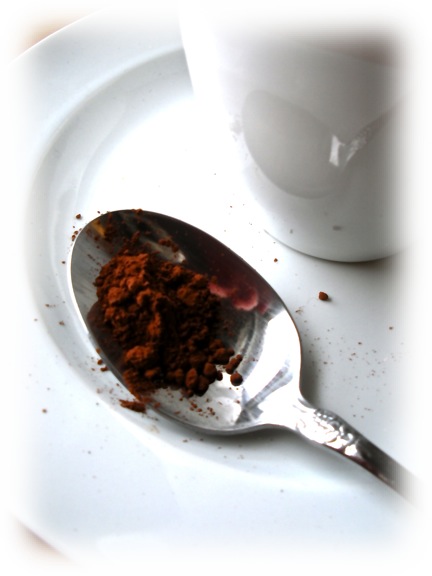 Me, a dietitian you could see
Me, a dietitian you could see Today I did a nutrition assessment for a friend to help improve her nutrition and meet some health goals. After our hour long session and giving her my "nutrition prescription" for the week I asked her if she had any feedback for me and if what she got was what she expected. What she said totally blew my mind, basically to the point of being an epiphany. "I thought that you would give me a list of foods that I needed to eat to help fix the specific problems." Woah! Mind blown! Okay, your mind probably isn't blown because if you are like 99% of the population you thought the exact same thing. This makes complete sense when you consider our health care system. You get sick, go to the doctor, they give a specific thing that you take (aka a pill), you take it, you get better. Pretty much any health care profession I could think of has a similar approach. But dietetics is not like that. Why? Because foods are not isolated compounds and eating is not a one time event. Before you are totally confused and stop reading, let me explain.
First, food, even in its simplest form, is made up of many different components. Fiber, vitamins, minerals, phytochemicals, protein, carbohydrate, fats, and water are just a few of the main components of our most basic foods. For each of those categories I just named, there are sub categories. Types of fiber, vitamins, minerals, phytochemicals, proteins, carbohydrates and fats. There are over 5000 phytochemicals alone! Are you starting to get the picture? Food is very complex. Pills and medicines are isolated compounds, put together in a very specific way meant to have a specific outcome. If you give someone a pill you have a pretty good idea what the outcome is going to be because you know exactly what you gave them. Food is not like that because no compounds are isolated. (And trust me, you don't want them to be. I have tasted isolated amino acids before. Lets just say there is a reason its generally given through a feeding tube).
Second, who wants to eat the same way we take pills? Every day count out what you need at breakfast, lunch and dinner, and then eat it just because you need whatever is in that food. It would be awful, and quite frankly, its not what your body needs. It needs nutrients coming in to fuel it, and it knows what to do from there. It needs a wide variety of things all working together to make it function, and you get that wide variety from eating different foods. There are times when a specific element is missing (a common example is iron), but that doesn't mean I would recommend sucking on rusty metal or even drinking blood (a great, but disgusting, source of iron). I would recommend eating foods that are high in iron and teach you food combinations that help your body absorb more iron because that works with how our body is naturally designed to function.
So what does a dietitian do when they see you?
First step is to do a nutrition assessment using what I call the ABCs.
A- Anthropometircs: This is your basic height, weight, BMI, mid-arm circumference, and hip-to-waist ratio type of things. Dietitians use this information to assess your body, what it needs, and what it might be at risk for.
B- Biochemical: This is blood work checking for things like iron levels, protein levels, and other things that tell us what is going on inside your body.
C- Client History: Basically we ask you really random questions about your lifestyle and history that seem really weird to you but have meaning to us. Things like bowel movements, your exercise habits, and your job. This gives us a picture of who you are, what your lifestyle is like, and how it impacts your nutrition.
D- Dietary: This is the part you probably would expect; we ask you what you eat.
After completing an assessment we talk with you about what things you need to change to be healthy, we educate you on how to do those things, we set goals with you, and send you off to give it a try. A week or so later (depending on the client and the dietitian), we meet up with you and see how it went. If you were able to meet your goals and feel confident you can keep doing them we add a new goal. If you weren't able to meet your goals we figure out why, change our approach so that you can meet your goals, and repeat the process. How long this process takes depends a lot on the client, how drastic the changes are they need to make, and how well they are able to follow the goals. Some people like to meet often to be accountable, others like to meet with a dietitian once every couple months. Either way is good.
What is the purpose?
To help you make healthy lifestyle changes that will keep your body healthy and happy. A dietitian looks at your past history (and even your family's history)to see what diseases and problems you might be at risk for or are already having problems with. They then educate you on what changes you need to make, give you tips on how to make those changes easily, and keep helping you change until you feel you've got it or until the health problem is under control.
What's the catch?
We can't make the changes for you. We can talk to you until we are blue in the face, we can help you by reminding you and encouraging you every day if needed, but if you aren't willing to do what we say nothing is going to change. Shocker. The other catch is that if you can't do the simple things (like eat your fruits and vegetables), we won't get into the more complex things (like combining foods to increase iron absorption). I think that is the hardest thing for clients. Everyone wants a magic pill, and with nutrition there are no magic foods or cure-alls. To get lasting benefits it really is all about making slow and steady changes. Boring, right? Don't even worry! Nutrition has more exciting things than you could ever imagine! After you eat your vegetables I'll tell you about them. :)
First, food, even in its simplest form, is made up of many different components. Fiber, vitamins, minerals, phytochemicals, protein, carbohydrate, fats, and water are just a few of the main components of our most basic foods. For each of those categories I just named, there are sub categories. Types of fiber, vitamins, minerals, phytochemicals, proteins, carbohydrates and fats. There are over 5000 phytochemicals alone! Are you starting to get the picture? Food is very complex. Pills and medicines are isolated compounds, put together in a very specific way meant to have a specific outcome. If you give someone a pill you have a pretty good idea what the outcome is going to be because you know exactly what you gave them. Food is not like that because no compounds are isolated. (And trust me, you don't want them to be. I have tasted isolated amino acids before. Lets just say there is a reason its generally given through a feeding tube).
Second, who wants to eat the same way we take pills? Every day count out what you need at breakfast, lunch and dinner, and then eat it just because you need whatever is in that food. It would be awful, and quite frankly, its not what your body needs. It needs nutrients coming in to fuel it, and it knows what to do from there. It needs a wide variety of things all working together to make it function, and you get that wide variety from eating different foods. There are times when a specific element is missing (a common example is iron), but that doesn't mean I would recommend sucking on rusty metal or even drinking blood (a great, but disgusting, source of iron). I would recommend eating foods that are high in iron and teach you food combinations that help your body absorb more iron because that works with how our body is naturally designed to function.
So what does a dietitian do when they see you?
First step is to do a nutrition assessment using what I call the ABCs.
A- Anthropometircs: This is your basic height, weight, BMI, mid-arm circumference, and hip-to-waist ratio type of things. Dietitians use this information to assess your body, what it needs, and what it might be at risk for.
B- Biochemical: This is blood work checking for things like iron levels, protein levels, and other things that tell us what is going on inside your body.
C- Client History: Basically we ask you really random questions about your lifestyle and history that seem really weird to you but have meaning to us. Things like bowel movements, your exercise habits, and your job. This gives us a picture of who you are, what your lifestyle is like, and how it impacts your nutrition.
D- Dietary: This is the part you probably would expect; we ask you what you eat.
After completing an assessment we talk with you about what things you need to change to be healthy, we educate you on how to do those things, we set goals with you, and send you off to give it a try. A week or so later (depending on the client and the dietitian), we meet up with you and see how it went. If you were able to meet your goals and feel confident you can keep doing them we add a new goal. If you weren't able to meet your goals we figure out why, change our approach so that you can meet your goals, and repeat the process. How long this process takes depends a lot on the client, how drastic the changes are they need to make, and how well they are able to follow the goals. Some people like to meet often to be accountable, others like to meet with a dietitian once every couple months. Either way is good.
What is the purpose?
To help you make healthy lifestyle changes that will keep your body healthy and happy. A dietitian looks at your past history (and even your family's history)to see what diseases and problems you might be at risk for or are already having problems with. They then educate you on what changes you need to make, give you tips on how to make those changes easily, and keep helping you change until you feel you've got it or until the health problem is under control.
What's the catch?
We can't make the changes for you. We can talk to you until we are blue in the face, we can help you by reminding you and encouraging you every day if needed, but if you aren't willing to do what we say nothing is going to change. Shocker. The other catch is that if you can't do the simple things (like eat your fruits and vegetables), we won't get into the more complex things (like combining foods to increase iron absorption). I think that is the hardest thing for clients. Everyone wants a magic pill, and with nutrition there are no magic foods or cure-alls. To get lasting benefits it really is all about making slow and steady changes. Boring, right? Don't even worry! Nutrition has more exciting things than you could ever imagine! After you eat your vegetables I'll tell you about them. :)



